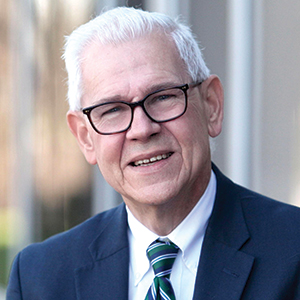The Tax Cuts and Jobs Act is set to expire on January 1, 2026, and with it the estate tax and trust exemption of $13.99 million per individual, or $27.98 million per married filing joint couple, will essentially be cut in half. However, given the results of the most recent presidential election, the likelihood of this particular exemption staying put has increased, says Patrick J. Weschler, Partner, Trusts & Estates at Buckingham, Doolittle & Burroughs, LLC.
“If a client said to me, ‘I think I’m going to wait until the middle of the year to make changes to my estate plan,’ I wouldn’t argue too much with them,” Weschler says. “It’s going to be a few months before we know the exact answer. Although both houses of Congress and the White House have gone Republican, the House margin is very thin. This could make it difficult for the President to pass this part of his planned tax program”
Still, Elizabeth Klucher Reynolds, an Associate at Buckingham, Doolittle & Burroughs, LLC, says until there’s certainty, it’s important that those considering their estate plans deal with the realities that exist right now.
“We still are advising our clients to situate themselves to be able to make a gift in 2025,” Reynolds says. “That advice is unlikely to change until we have confirmation that the current exemption amount will continue as is.”
Smart Business spoke with Weschler and Reynolds about wealth planning considerations in the new year.
What should individuals consider today?
Regardless of what happens to the estate tax exemption, virtually everybody can benefit from taking a good look at their current estate plan, or beginning the planning process.
An individual should review their estate planning documents, the way their accounts and assets are titled, and their beneficiary designations to ensure that everything is harmonizing with their goals and their current family circumstances. It’s often the case that a person’s intent 10 years ago is different from their intent today. So, those with an older estate plan should review their documents with a professional adviser to ensure the provisions still function as they intended. If there are elements that are out of date or no longer what the person wishes to do, then they need to modify their documents to reflect their current intent.
A single document such as a will or a trust isn’t sufficient to ensure that plans for every asset are executed as they wish. A will only moves probate assets — assets that are in a person’s sole name that do not have beneficiary designations. If the assets are in joint names, have beneficiary designations or are in another name such as in the name of a trust, it passes outside of the will. And so individuals need to make sure that they not only know where their assets are going and who they want to benefit, but also that their asset ownership is in alignment with that plan.
It’s also a good idea to consider planning for potential incapacity and what happens to the management of assets if the individual becomes incapacitated. In light of this, documents such as durable general powers of attorney, health care powers of attorney and living wills become very important as part of the planning suite.
How long does it take to put a plan together?
The amount of time that it takes to do an estate plan is incredibly elastic. It can go on over the course of a year or it can be done in a matter of days.
An estate planning project starts with an initial meeting to determine the individual’s wishes, followed by the drafting of documents to codify those plans, then the individual reviews those drafts, revisions are made and reviewed, then the plans are finalized. In some cases, all of those steps can be separated by months or sometimes just a few weeks, depending on the urgency of the individual’s situation. But something to consider is that there can be a queue to begin the process or additional time needed between subsequent meetings, so it’s best to start the process as early as possible.
Those who are considering their estate planning strategy should pay close attention to what’s going on in Congress. But regardless of what might happen, work should still be done to enact their estate plans because it’s prudent.
INSIGHTS Legal Affairs is brought to you by Buckingham, Doolittle & Burroughs, LLC.


